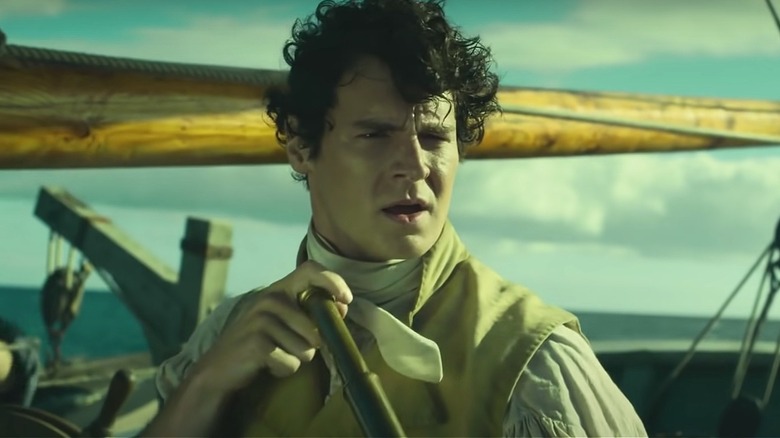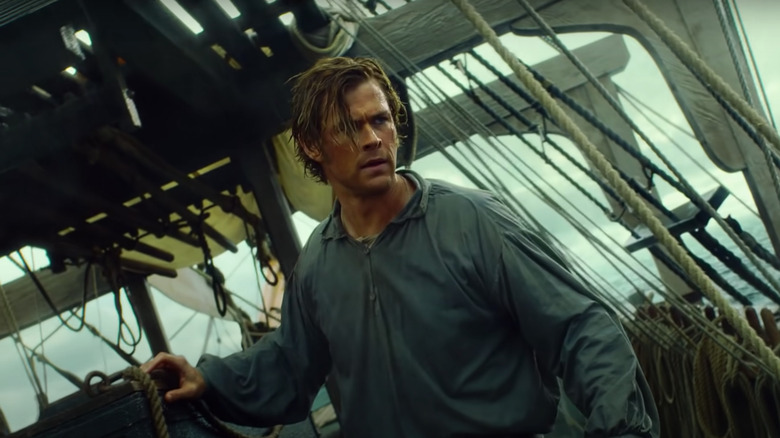The Real-Life At-Sea Animal Attack That Inspired The Famous Whale Tale Moby-Dick
"Moby-Dick" is indelible in the literary imagination, and that beast-like whale has himself become a deep repository of assigned meaning and symbolism. The whale is the unforgiving power of nature. The whale is the specter of the Civil War. The whale is god. As David Gilbert put it for The Atlantic, "There are so many symbols as to render symbols meaningless."
The whale is also, well, a whale — a fact Herman Melville never strayed too far from as he was writing the American classic. Melville took much of his inspiration from the doomed whaling ship the Essex, which was attacked by an 85-foot sperm whale in 1820 in the isolated waters of the South Pacific. The whale struck roughly 15 months into the voyage, which by then had already been plagued by squalls, fires, and poor fishing.
The whale was first spotted by first mate Owen Chase, who watched helplessly as the giant made a beeline for the ship. The whale made contact with "such an appalling and tremendous jar, as nearly threw us all on our faces," Chase later recalled (via Smithsonian Magazine).
"I could distinctly see him smite his jaws together, as if distracted with rage and fury," Chase continued. As the men worked to repair the damage done by the whale, it doubled back at an even faster speed and crashed into the bow, felling the ship for good.
In the Heart of the Sea was based on the Essex tragedy
The months following the Essex attack were harrowing, with the 20 survivors forced to crowd into three lifeboats and sail south. Faced with dwindling provisions and oppressive sun, the men resorted to cannibalism. Only five survived the ordeal.
In 1852, Herman Melville journeyed to Nantucket to meet a notable survivor, Captain George Pollard Jr., who worked on the island as a village night watchman. "To the islanders he was a nobody," Melville wrote, "to me, the most impressive man, tho' wholly unassuming, even humble — that I ever encountered" (via Smithsonian Magazine).
"Moby-Dick" wasn't an entirely faithful adaptation of the Essex tragedy, but the nautical tale got its due. In 2000, Nathaniel Philbrick published the nonfiction account "In the Heart of the Sea," which itself was adapted into the 2015 film of the same name.
Directed by Ron Howard, "In the Heart of the Sea" stars Chris Hemsworth as first mate Owen Chase, Cillian Murphy as second mate Matthew Joy, Benjamin Walker as Captain George Pollard Jr., Tom Holland as cabin boy Thomas Nickerson (with Brendan Gleeson playing his present-day counterpart), and Ben Whishaw as Herman Melville. While less narratively striking than "Moby-Dick" (the standards, after all, are quite high), the seafaring film boasts, according to The A.V. Club, a "visual style [that] makes for a bold approximation of [Melville's] allusive prose."

